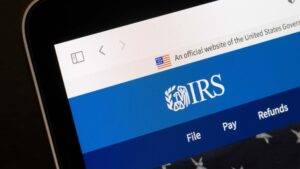
- |
- TaxByte
Starting January 1, 2026, meals provided for the convenience of the employer under §119 become
4 min read
SHOP THE WINTER SALE – Get deals across the digital catalog, conferences, credit packages, and more.
The importance of professional skepticism in ensuring the highest standard of audit quality can’t be overstated. Governed by professional standards and guidelines set by the Assurance Standards Board and other regulatory bodies, auditors are required to infuse a high degree of professional skepticism throughout the audit process.

If you’re asking “what is professional skepticism?”, it’s worth noting that it encompasses a questioning mind combined with a critical assessment of audit evidence. This mindset is crucial in obtaining reasonable assurance about whether financial statements are free of material misstatement. The exercise of professional skepticism enhances the auditor’s ability to detect inconsistencies or inaccuracies in the evidence obtained, thereby significantly elevating the quality of the audit.
Audit planning is where the engagement team establishes the audit plan, identifying significant risks and areas requiring more skepticism. During this phase, senior members of the audit team should provide guidance on how to critically assess audit evidence. The audit procedures are meticulously designed to obtain sufficient appropriate evidence, including documentary evidence and other audit evidence like analytical procedures, industry trends, and the entity’s management assumptions.
In the execution phase, the importance of professional skepticism becomes evident as auditors use their professional judgment to evaluate the business rationale behind related party transactions or accounting estimates. By applying professional skepticism, auditors can discern possible misstatements or possible fraud, thereby ensuring that the financial statements reviewed are not materially misstated.
When it comes to assessing audit evidence, auditors must maintain an appropriate level of professional skepticism. Whether reviewing financial statements, audit documentation, or any other form of evidence, the critical assessment of audit evidence should be a cornerstone of the audit process. This is especially important when examining areas that have high risks of management bias or inappropriate assumptions.

Maintaining an appropriate level of professional skepticism is also essential in the context of long-term relationships with audit clients. The pressure to keep client fees low, form a long-term audit engagement, and cross-sell other assurance services can sometimes compromise the level of professional skepticism exercised by auditors. Such pressures might make it tempting to take information at face value rather than digging deeper. However, audit firms need to have robust quality control mechanisms to ensure that the level of professional skepticism is not compromised. This involves training not just junior staff but also senior members of the engagement team about the importance of applying professional skepticism consistently, even in the face of unusual circumstances or suspected non-compliance.
Audit quality is directly related to the auditor’s exercise of professional skepticism, and this is recognized by international auditing standards. Regulatory bodies place a high degree of importance on auditors having the knowledge and skill to apply professional skepticism, as it leads to more persuasive audit evidence and ultimately, better financial reporting.
Given the rapidly evolving nature of business and the increasing complexity of financial transactions, the exercise of professional care and skepticism needs to be continually updated. Audit firms should focus on training their staff to evaluate new kinds of evidence, be aware of industry trends, and adapt to new auditing standards.
The importance of professional skepticism in auditing is manifold. It not only enhances the quality of the audit but also provides reasonable assurance to stakeholders that financial statements are accurate and reliable. Through constant learning and rigorous application, auditors can fulfill their role with the highest standards of professionalism and care, thereby serving not just the management but also investors, regulators, and other stakeholders.






Subscribe to our news, analysis, and updates to receive 10% off your first purchase of an on-demand digital CPE course.